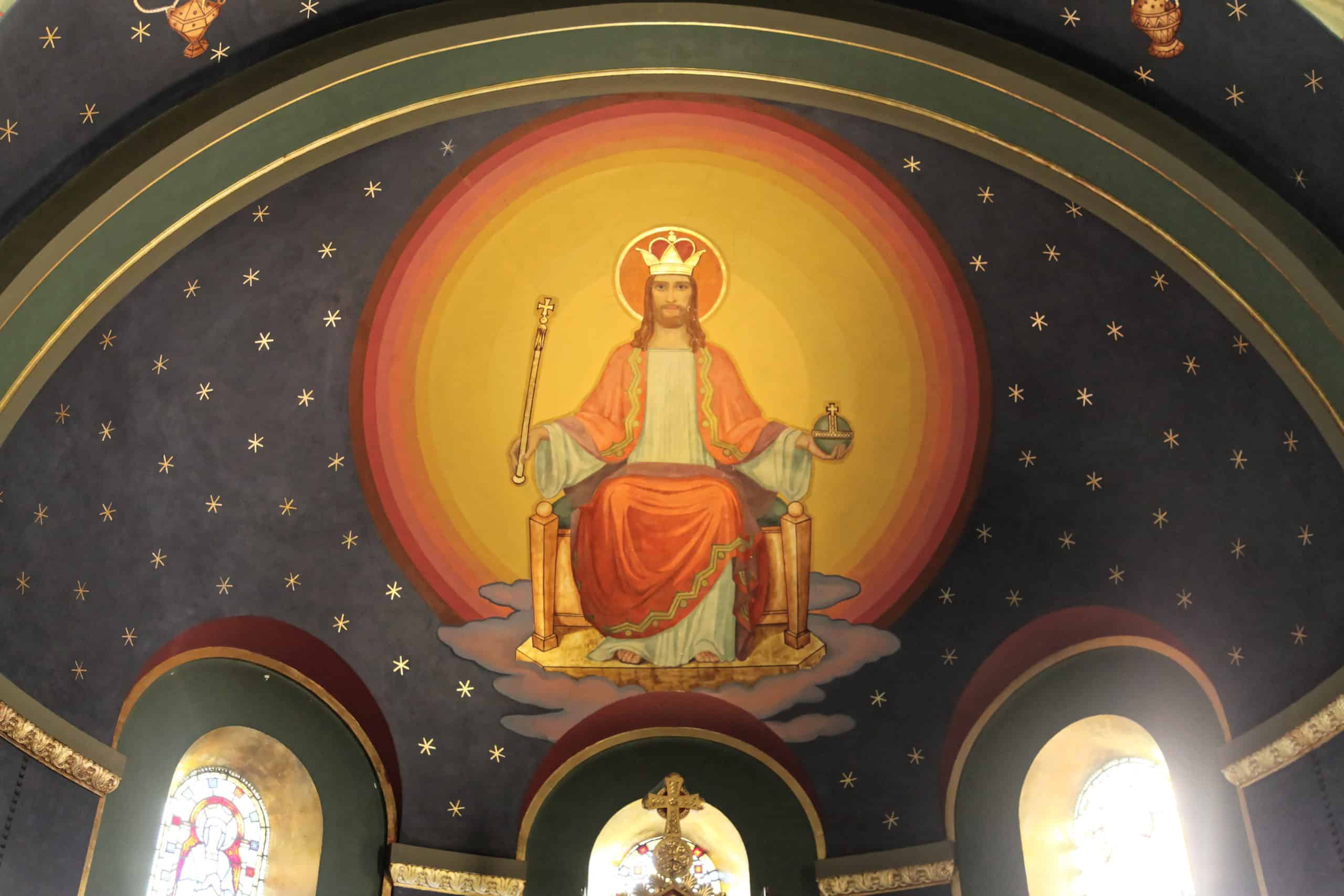Each of us has heroes, people we admire and look up to. And they color our perception of the world. The Call of the King meditation from the Spiritual Exercises gains some of its richness from putting those heroes in conversation with Jesus.
In the first part of the meditation, Ignatius invites the retreatant to imagine an earthly king chosen by God, one who will inspire his people to follow him on a quest to help right the wrongs of the world. And Ignatius goes on to note that this king is so good and the venture so noble that if we failed to follow on this journey, we would be thought mean-spirited and petty. But, in today’s world, what does such a monarch look like and what does the quest look like? It seems less likely that we would follow a king or queen today, though perhaps we would follow a hero. But who would that be?
Every year when teaching freshmen, I would have my students write an essay telling the story of one of their heroes, real or imaginary. The heroes ranged from family members to sports legends, fantasy characters to artists and musicians. This activity always produced one of the most impassioned responses I received from my students. I could tell that they genuinely appreciated the people about whom they wrote and that appreciation and gratitude came across very clearly. I always found it an honor to read these reflections.
As I read them, I thought about who I would have put down as my heroes. At various stages of my life, I would have listed family members, cartoon characters, superheroes, video game characters, religious figures, teachers, and a host of other people, both real and fictional. Throughout the years, I found connections and examples to imitate in different areas of my life ranging from my own faith and my academic talents to social skills and creativity.
And as we look at The Call of the King again, we think about one such hero in particular.
We consider our chosen hero playing the role of an earthly monarch. Again, this is the first of two parts of the meditation. While this part of the exercise is less important than the second part, it is an essential prelude to considering Christ the King. We imagine that some person or character who has made a positive impact on our lives is there and present.
We have a connection to this hero who speaks to us and invites us to join them (albeit indirectly) in a quest to right the wrongs of the world. We share, in a sense, in the venture equally alongside that hero (and whoever else we might imagine would be part of the good work). As much as we share in the difficulties, we will share in the victory to come. It can be easy to feel star-struck, especially if the hero is a more distant from us or it can feel like the person has known us forever and we feel comfortable working alongside them. Once we begin the quest, the journey can feel very important and intimate.
And, maybe, just maybe, something is missing. The flaws of our hero can start to emerge or we can see that the work in front of us is too hard. It may become clearer that we work alongside imperfect people, and that reality will inevitably lead to conflict despite our best intentions. The situation and the goal are good but limited. Something is lacking when we try to do everything relying on our own humanity.
Here, the second and more important part of the meditation comes into play. We now imagine Jesus’ call to bring about the Kingdom of God on earth. Jesus makes the same sorts of offers to us: if we follow Jesus through the difficulties, we will see and share in his glory. Unlike with our hero, there’s no mention of how we share proportionately to our efforts. We share totally in that glory just by going along for the journey. Think of the parable of the Laborers in the Vineyard (Mt 20:1-16); whether we work the whole day or come in the final hour, we are paid the same. Here, just by following Jesus, we share fully in the reward.
Similarly, Ignatius notes that Jesus calls each person individually, unlike the hero from before who speaks to the people as a group. Jesus’ call is personal, and we can imagine him looking us in the eye to do so.
Moreover, because the retreatant has traveled through the First Week and seen the way that Jesus looks upon us with love and compassion, knowing our own darkness full-well, following him seems to make even more sense. Perhaps we might have hesitated to follow the hero we admired but didn’t know on a personal level. With Jesus, however, following becomes almost second nature. Ignatius even says that anyone with judgment and reason will follow him. Why? Because he knows us intimately and loves us. And we also know that Jesus can do what he promises.
At this point, it’s easy to recognize Jesus’ place among our heroes and we agree to follow without hesitation. Perhaps we even overlook the difficulties on the horizon because we feel so safe in Jesus’ presence at this point.
But what about the hero we previously followed? Does that mean that we have to give them up because they fall short next to Jesus? I don’t think that is the case. The point of the exercise is to imagine someone we would follow to the ends of the earth and see how much bigger Jesus is than them.
In my own experience of the Spiritual Exercises, I imagined my hero laying down his sword at the feet of Jesus and pledging loyalty to him, perhaps even before I could. This hero, interestingly enough, helped bring me closer to Jesus. And, perhaps, there is something of the same dynamic that happens to all of us with those heroes who last in our lives. So, I ask who are your heroes? And, how do they help bring you closer to Jesus and to follow him as the eternal king?


